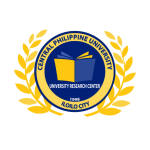- by Artchil B. Fernandez (completed April 2009)
ABSTRACT
The study was conducted on the social and economic consequence of the MT Solar 1 oil spill in Nueva Valencia, Guimaras twenty three months after the tragedy happened. This was a purely descriptive research which utilized and one-shot survey design. There were 309 household heads that served as the study’s respondents. The Statistical Package for social Science (SPSS) software was used to analyze the data. Results of the study revealed that the majority of the respondents were males, Roman Catholics and fisher folks. They were in their middle ages, with elementary or high school level of education whose average household size was 4.85. Results also showed that 23 months after the oil spill, the majority of the respondents reported no incidence of the illnesses identified by the study except cough, influenza and fever. The majority of the respondents had positive perception of their environment 23 months after the oil spill. Fishing was the main source of income of the majority of the respondents and their mean monthly income was Php 4,965.72. The majority of the respondents were aware of the health and aware economic of projects/programs for oil spill rehabilitation while more than three-fourths were not aware of projects and program for the environment. The majority of those who were aware of the health projects/programs for oil spill rehabilitation were able to avail them while the majority of those who know of the economic projects/programs for the oil spill rehabilitation were not able to avail them. The primary reason cited by those who were not able to avail of the economic projects/programs for oil spill rehabilitation was “ginapili lang (beneficiaries were selected).” The mean fish catch 23 months after the oil spill was 8.49 kg while the buying price of fish was Php 77.7 per kilo. Perceived serious personal and family problems of the respondents were financial, food and high price of rice while for the community they were financial, medicines and livelihood. The top three urgent personal needs of the household heads were financial, food/food supply and livelihood. For their families, the top three urgent needs were financial, food/food supply and medicines while for the community, the top three urgent needs were financial, medicines and livelihood
